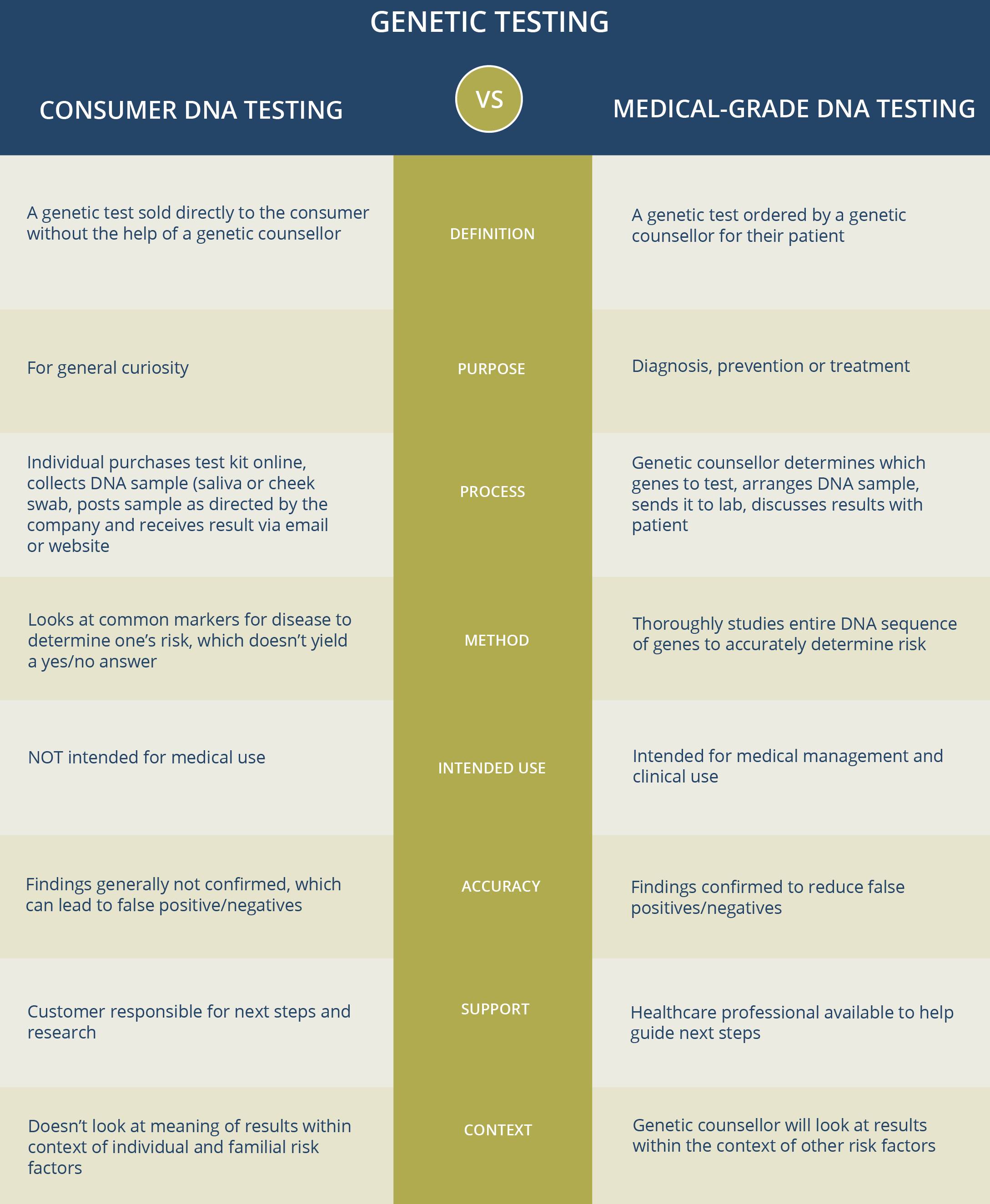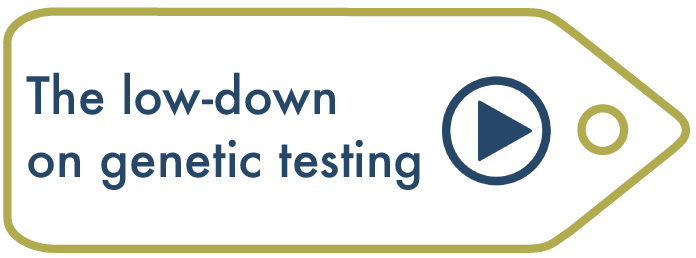Prostate Cancer Risk Assessment and Consideration of Genetic Testing
Prostate cancer has long been recognised to have a familial component. Of all human cancers, prostate cancer is the most common familial cancer.
Most clusters of prostate cancer in families are multifactorial with no clear genetic cause that can be identified through genetic testing. The exception to this is when there is a co-ocurring family history of breast and / or ovarian cancer, or multiple young cancers in close relatives or where limited family history information is known to assess familial risk accurately.
Patients with a family history of breast and / or ovarian cancer, or close relatives with young prostate cancer may want to discuss if there is a role for genetic testing about their risk for prostate and other cancers. All men with metastatic or hormone resistant prostate cancer are now encouraged to speak with their Doctor about determining whether they carry an inherited cancer risk mutation.
What is the incidence of an inherited predisposition
The incidence of men with prostate cancer with an inherited (hereditary) predisposition to cancer is not high, probably in the order of 1-2% if you look at ALL men with prostate cancer.
- In those with advanced disease especially metastatic castration (hormone) resistant prostate cancer, that number is higher, at around 12%. Although the majority of men with prostate cancer are cured of their disease, those with metastatic disease or castration resistant disease tend to die from their cancer. The proportion of patients with unfortunate “lethal” prostate cancer is around 20%.
- Prostate cancer is part of Hereditary Breast and Ovarian Cancer syndrome (HBOC). Actress Angelina Jolie raised awareness of this condition recently as she is a carrier of a BRCA1 alteration. This cancer predisposition syndrome is caused by alterations in the genes BRCA1 and BRCA2. Changes in the BRCA2 gene are mostly responsible for prostate cancer predisposition. BRCA gene alterations also increase the risk of pancreatic cancer and melanoma.
Implications for the family
If a man discovers that he is a carrier of an inherited mutation in the BRCA1, BRCA2, or other genes that increase risk for prostate cancer, this may have implications for all his family members. If male family members have inherited the same mutation, they may be at increased risk for prostate cancer and other cancers such as male breast and pancreatic cancer. If female family members have inherited these mutations, they may have an increased lifetime risk of breast and ovarian cancer.
Implications of finding a faulty gene (for men with metastatic cancer)
Currently a class of drugs called PARP inhibitors have been approved for ovarian cancer, breast cancer and pancreatic cancer patients. These PARP inhibitors are useful for patients who carry a BRCA mutation that is deemed harmful. PARP inhibitors are being tested specifically for prostate cancer patients. Results from early trials have been encouraging and we are awaiting results from large randomized trials to determine if this will also apply to this population of advanced resistant prostate cancer patients who do not have standard treatment options.
New Zealand Guidelines
There are no New Zealand referral guidelines for genetic testing. Health professionals involved in genetics tend to use eviQ https://www.eviq.org.au/ (NSW Government). However, in the case of prostate, eviQ have yet to publish a guideline. If your doctor refers you into the genetic testing services at the public hospital, you will be assessed by the genetic counsellors for your individual/familial risk for having an inherited predisposition to cancer and testing may be offered depending on your risk profile.
In 2018 the National Comprehensive Cancer Network (NCCN) in the USA recommended that all men, with advanced prostate cancer, should have genetic counselling and be offered genetic testing to determine if they have an inherited predisposition to cancer (amongst them is the BRCA2 gene).
Genetic testing in New Zealand
There are many factors that need to be considered when offering genetic testing to men with prostate cancer. We appreciate the resource implications in NZ for the public system.
With the price of genetic testing coming down and within reach of some men, they may choose to have a consultation with a genetic counsellor and self-fund this process. Testing can be performed on a saliva sample collected locally, with many of the tests performed by approved overseas laboratories.
Men should avoid genetic testing, without the involvement of a Genetic Counsellor
Genetic counsellors are health professionals with a post graduate degree and experience in the areas of medical genetics and counselling. All Genetic Counsellors enter the field with a background in genetics. Many have worked as diagnostic scientists in the field of genetics, as nurses, research scientists or psychologists. There are strict guidelines for Genetic Counsellors. In New Zealand Genetic Counsellors are Certified with the Australasian Society of Genetic Counsellors and are fellows of the Human Genetic Society of Australasia.
Men should avoid trying to do this themselves through any “direct to consumer” testing company or through their GP. Genetic Counsellors are trained to understand the complex nature of testing and result interpretation process. It is vastly different from testing for your ancestry.

How to Get Genetic Counseling and Testing?
If you or someone in your family has been treated for prostate cancer, your family’s General Practitioner of Specialist can make a referral to our service.



